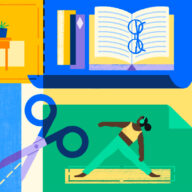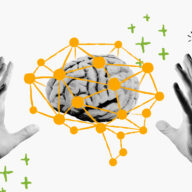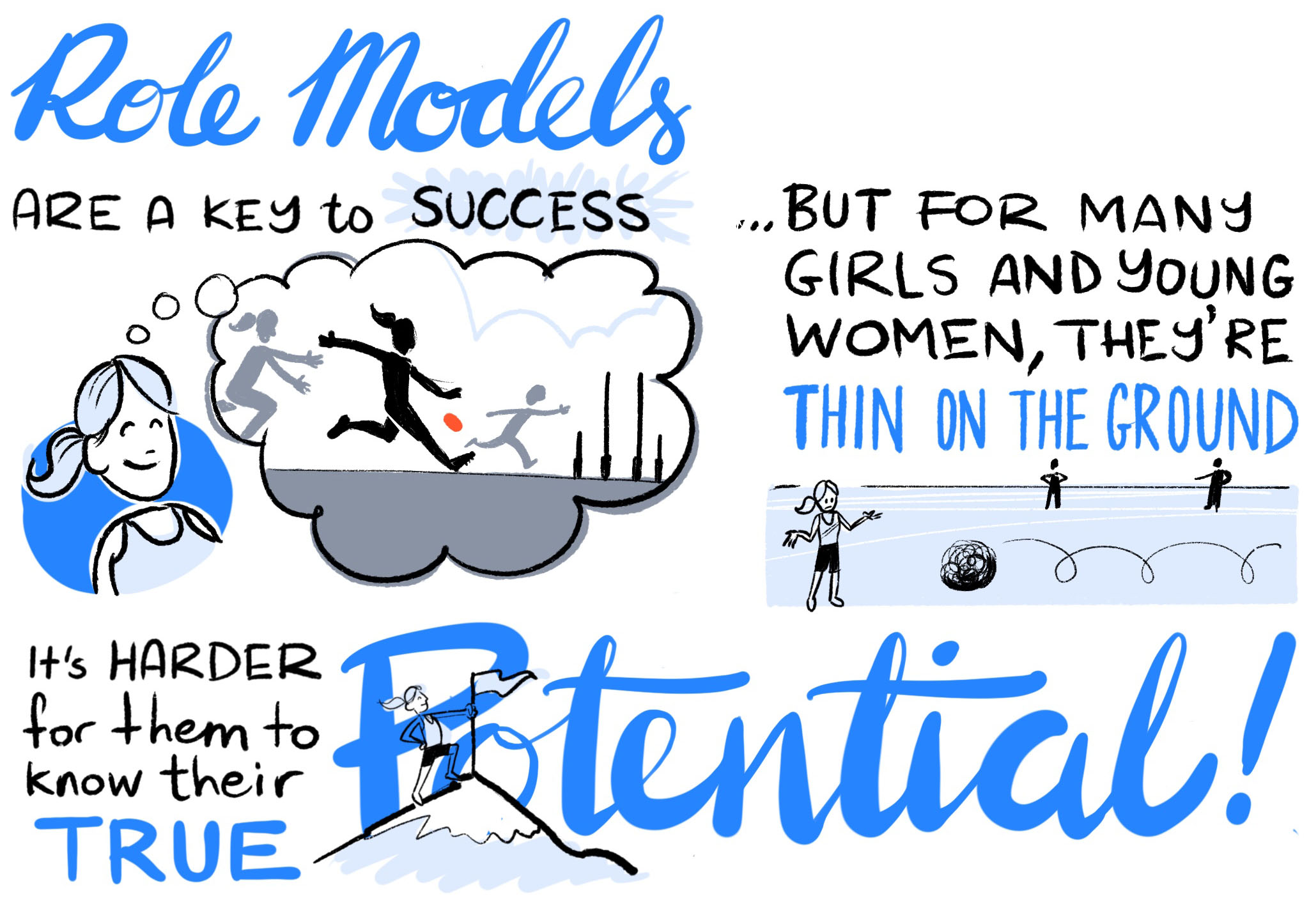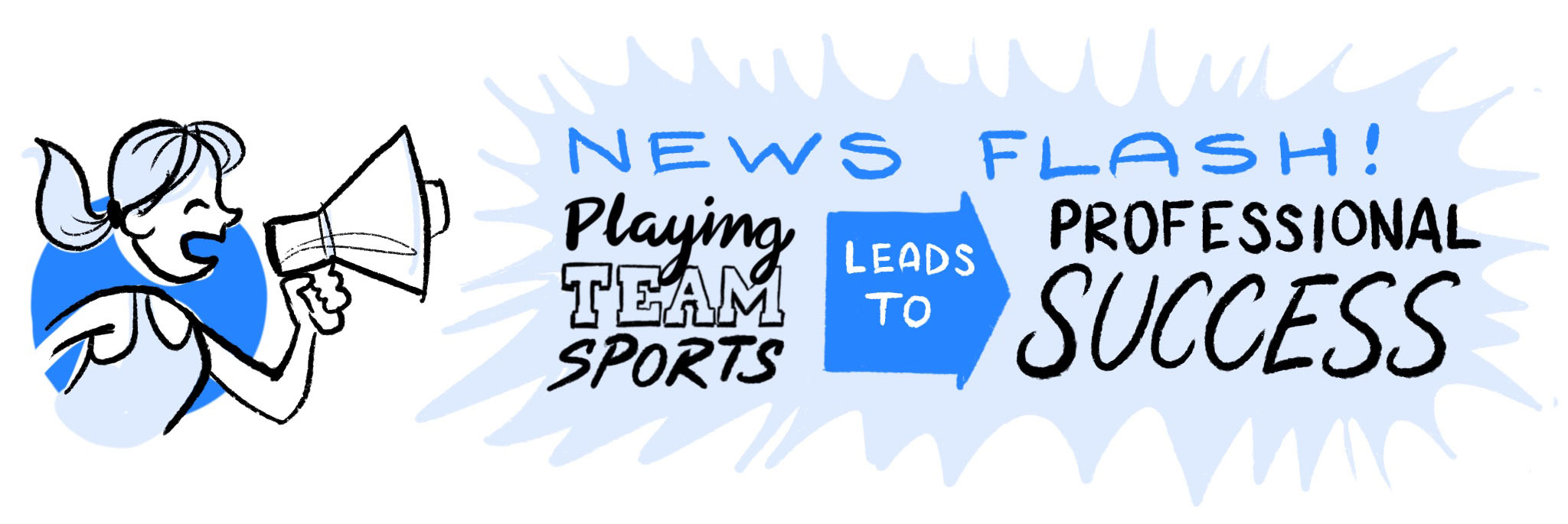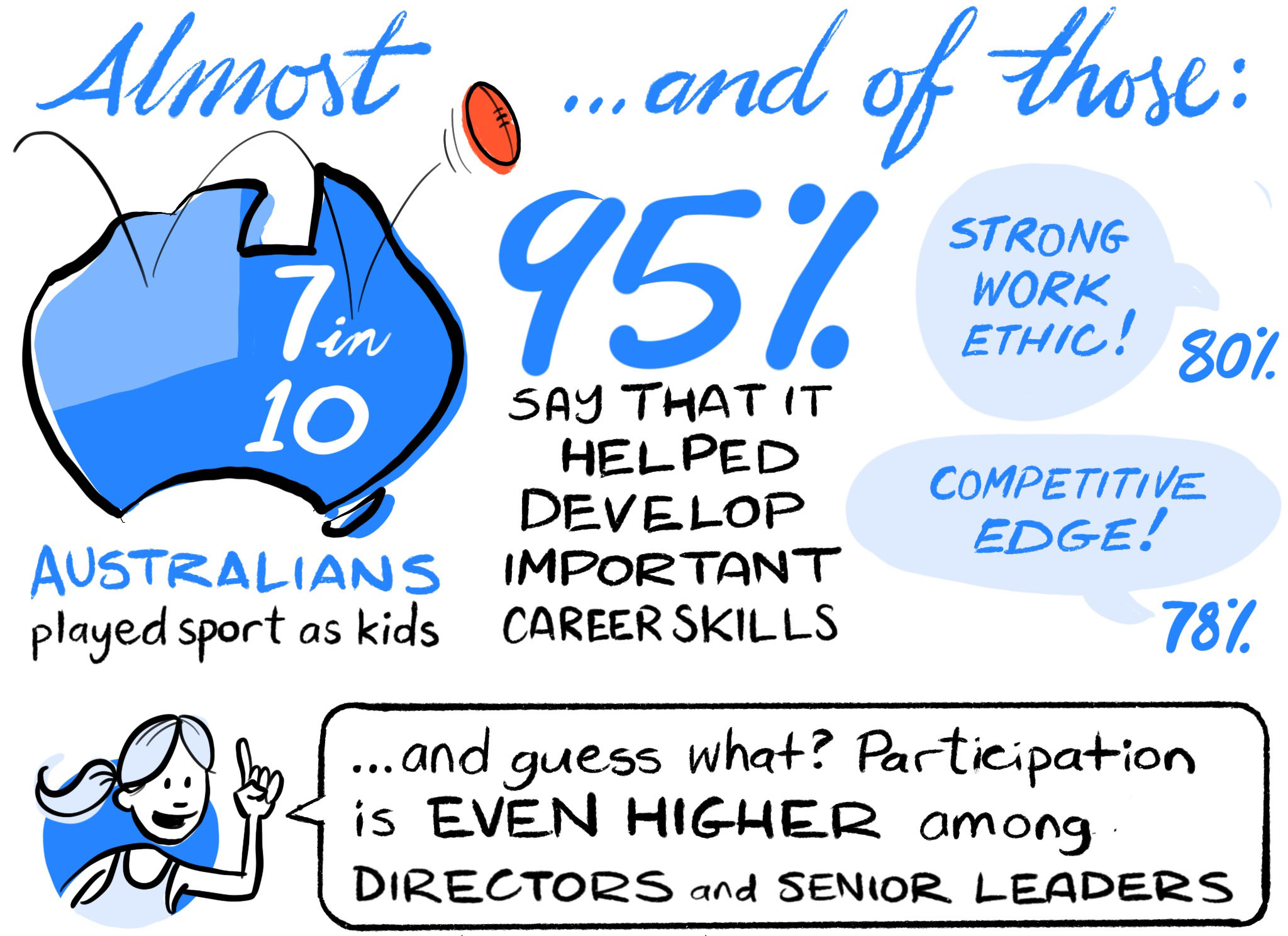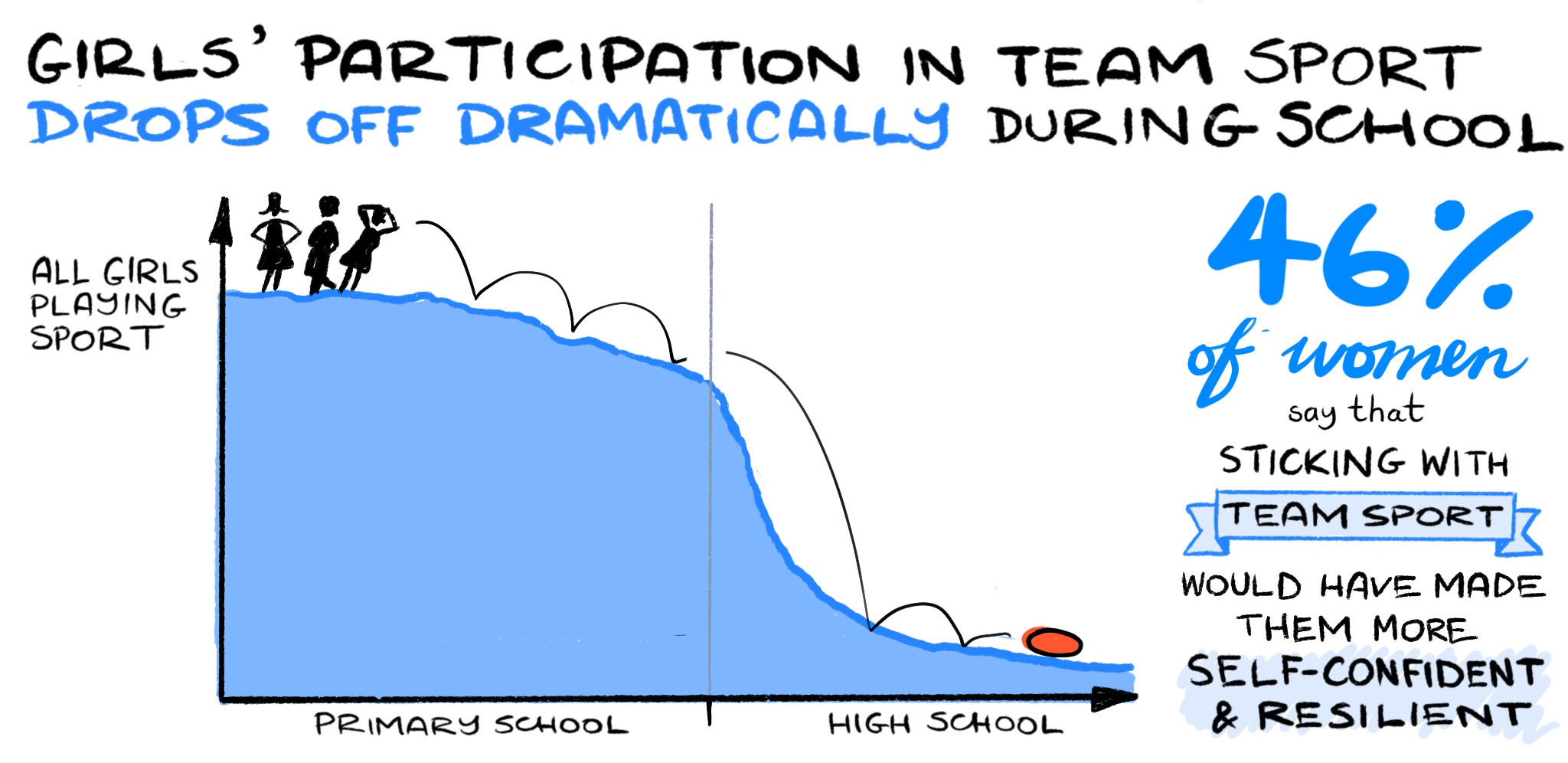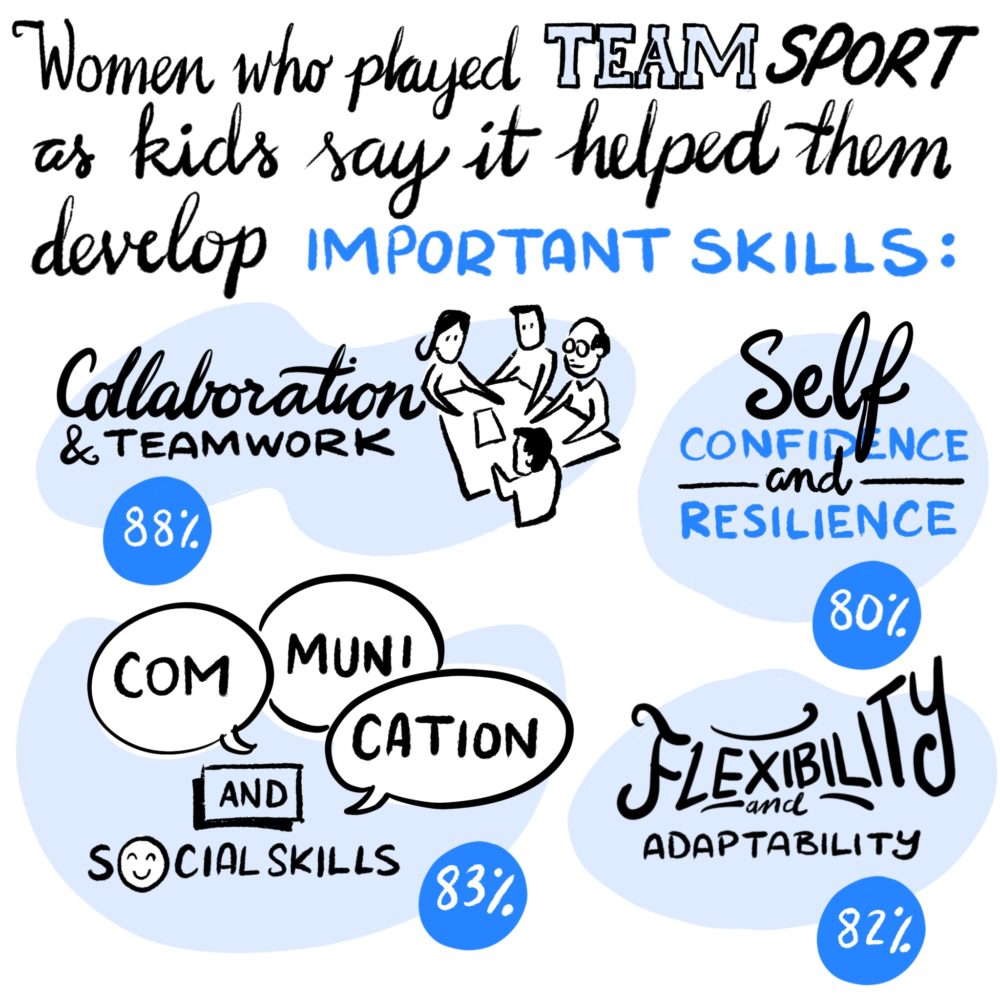Ask any successful person and they’ll tell you about a role model. Somebody they aspired to be like. Somebody who showed them the way.
Yet for many girls and young women, these role models are thin on the ground. This means they might never know what they’re capable of achieving. This is especially true if they’re looking to make their way in traditionally male-dominated worlds like sport or technology.
That’s a great shame for these industries because they’re losing out on the potential innovation, creativity, and brilliance of these young dreamers. As complexity becomes a fact of life, the lack of diverse thinking increases the risk that companies and entire industries will lose relevance. It’s time we did something other than talk about the problem.
Women have so much to offer as leaders but they need to believe they’ll be given an opportunity and supported if they go after it. By showing what’s possible, especially when talking to young girls, we can change who they believe they can be. What they believe they can achieve. That’s really powerful.
It isn’t going to be easy, partly because ‘women’ is such a diverse group. Some will identify as women of color, as mothers, as immigrants and many other things all at once. But this added complexity isn’t a valid excuse for not trying. Quitting is easy but hurts us all.
We recognize that Atlassian can’t solve this problem alone but – to use a sporting analogy – we want to play a captain’s role. We want to be the best on the field.
We’re empowering the female leaders in our business because we know it will make other forward-thinking leaders want to join us. We also recognize the role we have to play in helping women who are still in the early stages of career development realize what they could be. By lighting that fire we hope they’ll want to join us too. That’s just good sense for a rapidly growing business that wants to help customers around the world build the future.
From an industry perspective, and more broadly as a society, we need to close the imagination gap between traditional thinking and what’s possible. There’s so much focus in the current media and industry commentary about empowering women but that’s only half of the equation. This isn’t just about convincing more young women that they aren’t impostors – that they have what it takes to be great leaders. We must also convince men to be led by them. We can only do that by exposing them to women who are excellent leaders.
A long and short game
This is going to take time. But no monumental change ever started without millions taking a bold step forward. For us, that means we must be brave enough to have an immediate impact. It means changing primary school and university campus perceptions as well as those within internship programs and boardrooms. It means giving these girls and young women the confidence they need to set lofty goals and go after them.
Being part of a team is a great way of developing the skills needed for leadership. This is why Atlassian commissioned research in partnership with the Australian Football League. We wanted to explore the relationship between playing team sports and professional success.
It’s safe to say there’s a clear correlation. Of course, sports aren’t for everybody. We get that. The good news is that team sports aren’t the only way to develop these valuable skills. Being part of a debating team, theatre group, choir or the scouts also resets perceptions at a young age. It creates a sense of belonging and offers a place to grow safely. A place to stretch yourself.
All of these little bits of inspiration, positive experiences and exposure to successful role models gives young girls a reason to expect change while companies figure out how to get this right.
Atlassian is investing in this because it’s core to our identity. It’s our mission to unleash the true potential in every team. We can’t do that if the business world is underplaying the abilities of half its population.
We don’t just want to set an example and lead on this, we want to run out in front of the industry. We want others to see what we’re doing and be inspired by our successes, failures and the lessons we learn. This is an industry-wide problem so it’s going to need a solution that’s developed on the same scale.
We’ve taken the first step but we dare others to do bigger and better. If you want to be part of the adventure it’s time to lace up those boots, don your team jersey and run out onto the field of play. It’s time to get up and do something to build a better tomorrow.
What’s the score?*
Almost seven in 10 Australians played team sport between the ages of five and 18. Of those who did, 95 percent say it helped them develop important career skills. These included a strong work ethic (80 percent) and competitive edge (78 percent).
So it’s no surprise three quarters say team sports have contributed to their professional success. Participation is even higher among directors and senior leaders.
Many women miss out on the development of these skills because of lower participation in team sports and higher dropout rates. Half quit playing in high school with 16 percent not even staying involved through primary school.
Women recognize the lost opportunity. Two out of three say it would have helped them develop further skills, while almost half (46 percent) say it would have helped them be more self-confident and mentally resilient. One in four women regrets quitting team sport because it’s impacted their professional success in the workplace.
The cultural reasons behind why girls often quit team sport need addressing. Many women report a lack of confidence, opportunity, and support as barriers to entry. Worse still, 16 percent say they didn’t play because of teasing and bullying. These are early learnings about their place in the world that we must help girls and young women break.
Only one in three women continued playing team sport into adulthood compared to half of men. And girls are less likely to advance into more serious competition, with four out of five never getting beyond school or local club level. By comparison, one in three boys will play at regional or state representative level.
Women who played team sport as children say it helped them develop important professional skills like collaboration and teamwork (88 percent), communication and social skills (83 percent), flexibility and adaptability (82 percent), self-confidence and resilience (80 percent). Three-quarters of women say team sports improved their ability to give and receive feedback, while two-thirds credit it with the development leadership skills (67 per cent).
Sports personalities and team coaches are the most common role models for half of boys but just one-quarter of girls. This is hardly surprising given the lower participation, but it’s also partially explained by the fact that women who play professional sport get significantly less publicity than men.
Missing out carries a high price. For 43 percent of women, the biggest loss was the opportunity to develop self-confidence and resilience. Social, leadership and teamwork skills also featured prominently. These soft skills are closely linked to career development, with three-quarters of Australians saying team sport has contributed to their personal success. One in four women regrets quitting team sport because it’s led to a crucial loss of skills or impacted their professional development.
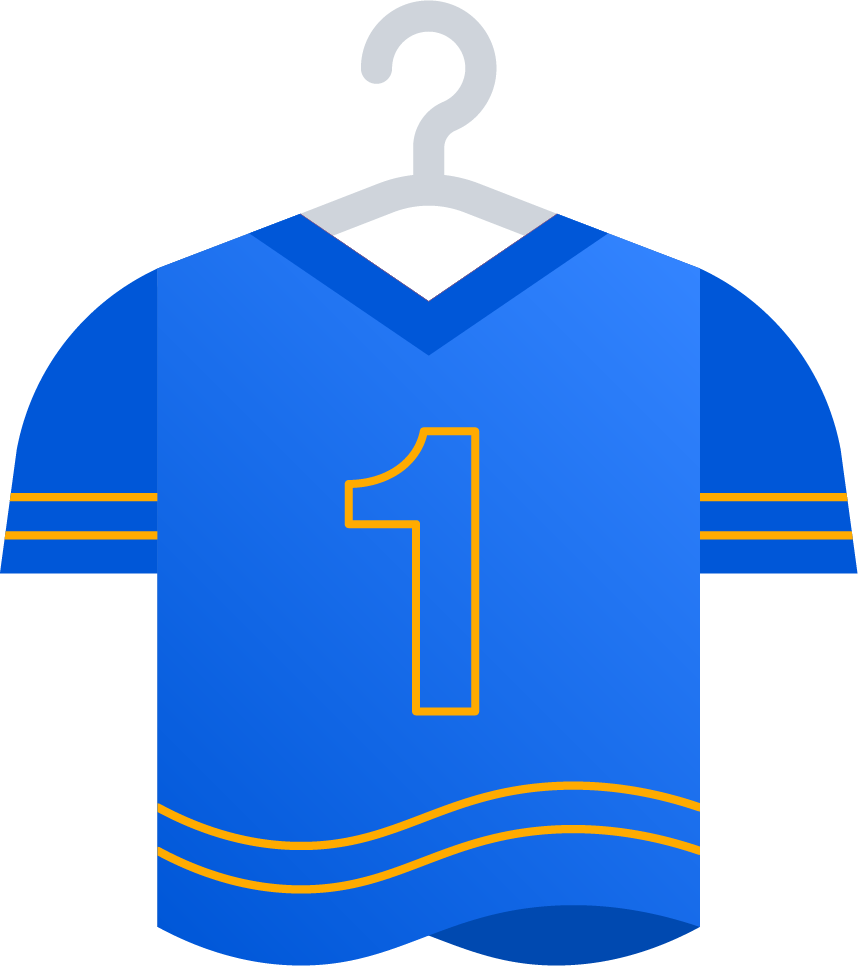 The research shows those who play team sport are significantly more likely to reach managerial and other roles of responsibility while continuing to play into adulthood increases this likelihood. They’re more likely to meet their goals, handle what comes their way, feel prepared, find solutions to problems and stay calm in the face of adversity.
The research shows those who play team sport are significantly more likely to reach managerial and other roles of responsibility while continuing to play into adulthood increases this likelihood. They’re more likely to meet their goals, handle what comes their way, feel prepared, find solutions to problems and stay calm in the face of adversity.
While we’re invested in making a change, we know they’ll need all of these skills on their journey to becoming leaders. Women often face career barriers that don’t exist for men. The skills developed during team and group activity ensure they’re equipped to maintain perspective and stay level-headed in high-pressure situations, motivate teams around them and see failure as an opportunity to learn.
Collaboration is one of the main skills developed by team sports. Women are more likely than men to view collaboration as helping others to develop, meaning that women don’t see maximizing their own productivity as the only objective. They’re focused on making the whole team achieve better outcomes.
Yet interviews with Australian parents suggest girls are still less likely to play team sports than boys, even though they can see the benefits of getting them involved. More than half of parents with girls say lack of interest is the main reason they don’t play a team sport. There’s great value in sparking that interest and giving more girls a reason to dream.
Meet the team
Atlassian partnered with the AFL because we’re both struggling with the same challenge. We both want to blaze a trail for our respective industries to follow and do our part to remove the barriers women still face on the way to achieving their dreams. We want to build balanced teams, helping girls and young women believe they can be leaders in sport, technology or any other chosen field.
Lily Serna is a data analyst at Atlassian who remembers being good with numbers as a girl. By the time she was leaving high school, she’d decided she wanted to work in mathematics. It wasn’t easy because she lacked a role model.
“I didn’t really have anyone in my immediate space who had done that,” she says. “It would have been a lot easier if someone I knew was one step ahead of me. It would have been amazing for somebody to show me the ropes.”
AFLW Brisbane Lions defender, Kate Lutkins, has that role model. She remembers being obsessed with an older girl when she started playing indoor football as a 10-year-old.
“There was a girl who was a few years older than me and I absolutely looked up to her,” Lutkins says. “I wanted to be her and play football like her. Part of who I am today is because of her.”
It also leaves a memorable impression when girls are in a position to lead others. Atlassian program manager, Rachel Scott, still has fond memories of her time as a rowing captain. It still merits a mention on her CV because she feels that it says something about her.
“I’m really proud of the opportunity I had to lead other girls,” she says. “You have to crack on no matter how physically, mentally and emotionally fatigued you are.”
That’s a reality week in and week out for AFLW Brisbane Lions fullback, Leah Kaslar: “You’re putting your body on the line for these people on the field so you need each other and you’re going to stand up for each other,” she says.
Molly Hellerman, head of strategy and programs at Atlassian, says sports are the greatest teaching tool. It teaches fantastic leadership skills because you have to be able to understand people. You have to respect people and empathize with them. She’s always gotten a kick out of that.
“I’ve loved being that sounding board,” she says. “Being a role model who shows girls they can coach or play to a high level has been important to me.”
AFLW GWS GIANTS midfielder Courtney Gum says you can take aspects of sport into your work life and vice versa. She’s learned a lot about resilience and perseverance. Atlassian program manager Sue Napoli enjoys the team vibe whether it’s celebrating a win or commiserating after a loss. “Either way, you’re better off than when you started,” she says.
Serna helped found the first women’s team at her local soccer club: “Has it made me more confident? Has it made me more resilient? Without a doubt. You naturally feel supported in that team environment.”
Kaslar is proud that the AFLW is making a difference. She recalls a conversation with a dad who told her how seeing the women’s league had inspired his daughter: “This girl didn’t think she could play AFL but now she’s down at Auskick with her brother. She’s kicking a footy and thinks she’s invincible.”
AFLW GWS GIANTS midfielder Renee Forth hopes more girls and young women will want to take that step “Times are changing,” she says “and we can be whatever we want.”
If one parent reads this and encourages their child to take part in team activities, we’ll be marking a win on our scorecard.
*Research Notes
Research was conducted in December 2017 by Advanced Market Research on behalf of Atlassian. Survey data was collected via an online survey of 1,002 Australians, designed to ensure results would be representative at State, Gender and Age level. The target audience for the research includes a nationally representative sample of adult Australians.
















